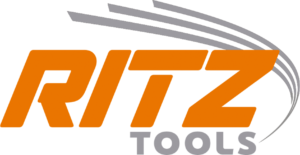In the world of electrical contracting, the right tools are not just essential; they are the backbone of every successful project. Electrical contractors rely on a variety of equipment to ensure safe, efficient, and accurate electrical work. Among the most crucial tools in their arsenal are lineman tools. In this comprehensive guide, we will explore the essential lineman tools that empower electrical contractors to excel in their field.
1. Understanding Lineman Tools
Before we delve into the specific lineman tools, let’s understand what they are and why they are indispensable to electrical contractors. Lineman tools are specialized instruments designed to assist electrical professionals in the installation, maintenance, and repair of electrical systems. These tools are engineered for safety, precision, and reliability, making them a must-have for any contractor.
2. The Must-Have Lineman Tools
A. Pliers
Pliers are the Swiss Army knives of lineman tools. They come in various types, including side-cutting, diagonal-cutting, and long-nose pliers. Pliers are versatile and help electrical contractors grip, twist, cut, and bend wires with ease.
B. Wire Strippers
Wire strippers are essential for removing the insulation from electrical wires. They ensure a clean and precise strip, reducing the risk of damage to the wire. Quality wire strippers are adjustable to accommodate various wire sizes.
C. Screwdrivers
Screwdrivers are indispensable for securing electrical connections. Electrical contractors often require both flathead and Phillips-head screwdrivers in their toolkit to handle different types of screws.
D. Voltage Tester
Safety is paramount in electrical work, and a voltage tester is a crucial tool for ensuring circuits are de-energized before any work begins. It helps contractors identify live wires, preventing accidents.
E. Lineman’s Pliers
Lineman’s pliers, also known as combination pliers, are designed for heavy-duty tasks. They have a gripping jaw for holding and twisting wires, making them ideal for electrical contractors working on power distribution lines.
3. Safety Equipment
A. Insulated Gloves
Insulated gloves are a lifeline for electrical contractors. They protect against electric shocks and are a vital safety measure when working with live wires.
B. Safety Glasses
Safety glasses shield the eyes from potential hazards such as sparks, debris, or chemical splashes. They are essential for safeguarding the contractor’s vision during the job.
4. Tool Storage and Organization
A. Tool Bag or Belt
Efficiency is key in electrical contracting, and having a well-organized tool bag or belt ensures that every tool is readily accessible. It saves time and reduces the chances of losing or misplacing tools.
5. Regular Maintenance
To keep lineman tools in excellent working condition, contractors must regularly inspect and maintain them. This includes cleaning, lubricating moving parts, and replacing damaged tools promptly.
In conclusion, lineman tools are the backbone of any electrical contractor’s toolkit. These essential instruments empower contractors to perform their work safely and efficiently. By investing in quality lineman tools and safety equipment, contractors not only ensure the success of their projects but also prioritize the well-being of their team members. So, remember to equip yourself with the must-have lineman tools, prioritize safety, and stay organized to excel in the world of electrical contracting.
What are lineman tools, and why are they important for electrical contractors?
Answer: Lineman tools are specialized instruments designed for electrical professionals to install, maintain, and repair electrical systems. They are important for electrical contractors because they ensure safety, precision, and reliability when working with electrical components, helping them complete projects efficiently and safely.
What are the essential safety equipment items that electrical contractors should have in their toolbox?
Answer: Electrical contractors should have essential safety equipment like insulated gloves and safety glasses in their toolbox. These items protect against electric shocks and eye injuries, making them crucial for maintaining the safety of contractors while working.
How do I choose the right pliers for electrical work?
Answer: When choosing pliers for electrical work, consider factors like the type of work you’ll be doing, the size of wires you’ll be handling, and the comfort of the grip. Side-cutting, diagonal-cutting, and long-nose pliers are common types used in electrical work, and the choice depends on the specific task.
Can you provide tips for organizing lineman tools in a tool bag or belt?
Answer: To organize lineman tools in a tool bag or belt effectively, arrange them based on frequency of use and accessibility. Use pockets and compartments for smaller tools, and secure larger tools with clips or straps. Regularly check and maintain your organization to ensure efficiency on the job.
What is the purpose of a voltage tester, and how do I use it safely?
Answer: A voltage tester is used to check if electrical circuits are de-energized before working on them, ensuring safety. To use it safely, follow these steps:
- Ensure the tester is in good condition.
- Insert the probe into the circuit.
- Observe the indicator for voltage presence.
- Always treat wires as live until you confirm they are not.


